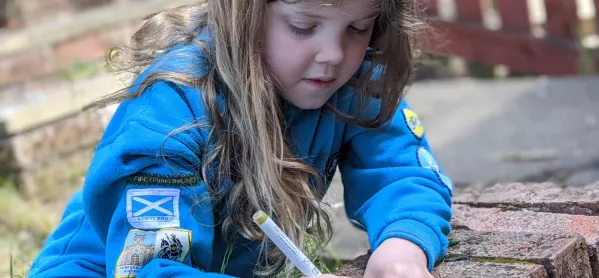A lot of the best memories from my childhood and adolescence are connected, one way or another, to the Scout movement. I was a beaver, a cub, a scout and (as they were then known) a venture scout, and I wouldn’t be the person I am today without all of those experiences.
I learned to be prepared, of course, and to respect others, but above all, I learned that I could do all sorts of things if I just tried. Life-changing trips to Australia at 15 (with my school) or around western Europe after university (alone on a motorbike) probably wouldn’t have happened, and even my parallel semi-career as a journalist and writer would have likely remained out of reach.
These days, I’m a bit old for a necktie and woggle but my seven-year-old son already loves it. He joined the beavers just before the first lockdown and, even after a huge gap, was adamant that he was going back when they reopened. He loves making friends and is right up for camping trips but I’ve also been struck by his enthusiasm for another key feature of the scout movement: the badges system.
Badges of recognition: Exams are fundamentally flawed - so let’s try this
Quick read: 4 ways to transform Scottish education
Long read: How a Scout troop is helping special school pupils flourish
If you don’t already know, the Scout badges recognise young people’s achievements across a wide range of areas, from angling and astronomy to water activities and world faiths. They incorporate a superb combination of knowledge, skills, experiences and outcomes.
They can be tailored to young people’s needs and interests. Some of them operate on a staged basis. In order to gain the chef badge, for example, young people must:
- Plan a menu for a weekend event involving four to six people.
- Show how and where to shop for the food as well as the best way to transport it.
- Prove that they know how to store food safely and hygienically.
- Cook and serve at least one of the meals from their menu.
- Clean up properly afterwards.
I’ve said this before and people sometimes think I’m kidding but I swear the badges model used by the @scouts has a lot to teach us about how we run our exam system. pic.twitter.com/RGvNBZnGTv
- James McEnaney (@MrMcEnaney) September 15, 2021
I’m not the first person to make this argument but I think our school system could learn a huge amount from this approach. The Scout badges system allows young people to build up a portfolio of awards and achievements that is driven by their own interests but also encourages them to go beyond those boundaries. It encourages the sort of engagement and enthusiasm that can make such a massive difference to education, all within a flexible structure that puts the young people themselves at the heart of it.
By contrast, our current exam system is a disaster. It entrenches inequality, rewarding affluence rather than hard work. And, all too often, it kills the love of learning that young people develop before we start grinding them through the gears of the senior phase.
We are desperately in need of new approaches to recognising, rewarding and certifying the learning and development of our students but, as the Scout badges system (and its relatives such as Open Badges and Microsoft Badges) have already shown, we don’t need to completely reinvent the wheel in order to get there.
James McEnaney is a writer, lecturer and former schoolteacher in Scotland. His new book, Class Rules: the Truth about Scottish Schools, is out now
